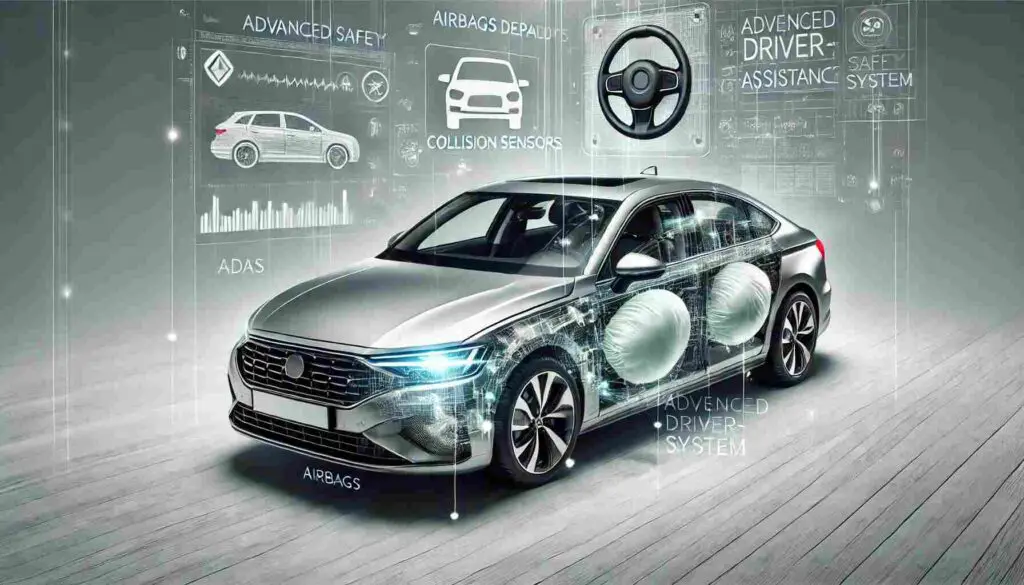In the era of rapidly advancing automotive technology, the debate between electric vehicles (EVs) and gas-powered cars continues to gain momentum. With the growing concern for the environment and the need for sustainable transportation solutions, it’s crucial to objectively analyze the financial aspects of owning these two types of vehicles. In this comprehensive analysis, we explore the cost-effectiveness of EVs compared to their traditional counterparts, aiming to provide readers with a data-driven perspective to aid in making informed decisions.
The Soaring Popularity of Electric Vehicles
The surge in popularity of electric vehicles is not only attributed to their environmental benefits but also to the significant advancements in EV technology. With the gradual shift towards clean energy, many individuals are considering EVs as a viable option for their transportation needs. The expanding availability of charging infrastructure further solidifies their practicality in everyday life.
Environmental Advantages of EVs
Electric vehicles stand out for their reduced carbon footprint and decreased reliance on fossil fuels. As the world strives to combat climate change, the shift towards EVs aligns with these sustainability goals. While gas-powered cars emit greenhouse gases during operation, EVs produce zero tailpipe emissions. This factor not only contributes to cleaner air but also positions EV owners as environmentally conscious individuals.
Unveiling the Cost Efficiency of EVs
Initial Purchase Cost
One of the initial concerns with EVs is their seemingly higher upfront cost compared to gas-powered cars. However, this perception can be misleading. Technological advancements and increased market competition have led to a gradual narrowing of the price gap between EVs and traditional cars. Moreover, various government incentives, such as federal tax credits, substantially reduce the initial cost of purchasing an EV, making it a financially attractive option.
Fuel Cost Comparison
When evaluating the cost of fueling an EV versus a gas-powered car, electricity emerges as a more economical choice. The average cost per kWh of electricity in the United States is notably lower than the cost per gallon of gasoline. This translates into significant savings over time, particularly when considering the lower energy consumption of EVs compared to their gas counterparts.
Maintenance Expenses
EVs possess a distinct advantage in terms of maintenance costs. With fewer moving parts and the absence of components like oil changes and spark plugs, maintenance expenses are considerably lower than those for gas-powered vehicles. This reduction in maintenance requirements directly contributes to long-term cost savings for EV owners.
Depreciation and Resale Value
The depreciation of vehicles is a critical factor in ownership costs. Interestingly, EVs tend to experience slower depreciation compared to gas-powered cars. Factors contributing to this include the continuous improvement of EV technology, decreased reliance on volatile fuel prices, and the increasing desirability of EVs among buyers. As a result, EV owners may enjoy higher resale values, further enhancing the overall cost efficiency.
A Holistic Cost Analysis
To comprehensively evaluate the cost efficiency of EVs, it’s essential to consider multiple factors, including the initial purchase price, fuel costs, maintenance expenses, and depreciation rates. By incorporating all these elements, it becomes evident that EVs offer a compelling financial advantage over gas-powered vehicles, particularly in the long run.
In-Depth Research and Comparison
Before making a decision, conducting thorough research is paramount. Individuals should consider various EV models based on their specific needs and preferences. Factors such as driving range, features, pricing, and charging infrastructure availability should all play a role in the decision-making process.
Addressing Common Concerns
- Initial Cost: Contrary to the perception that EVs are expensive, it’s essential to recognize the various offsetting factors such as incentives and long-term savings that make EVs a cost-effective choice.
- Upfront Cost Justification: Understanding the reasons behind the initial higher cost of EVs, including technological advancements and economies of scale, can help justify the investment.
- Charging Infrastructure: The rapidly expanding EV charging infrastructure, coupled with the availability of home charging solutions and public charging networks, addresses concerns about charging convenience.
- Maintenance Costs: Dispelling the misconception of high EV maintenance costs by highlighting the simplified mechanics of EVs and their resultant reduced maintenance needs.
Real-Life Examples
Numerous real-world instances demonstrate the tangible benefits of EV ownership. Personal experiences of individuals who have transitioned to EVs emphasize the significant cost savings and positive environmental impact.
Factors Influencing Ownership Costs
Driving habits, location, electricity rates, and regional incentives all play a role in determining ownership costs. Tailoring these factors to individual circumstances is crucial for accurate cost calculations.
Navigating Government Incentives
Federal and state-level incentives, such as tax credits, rebates, and grants, substantially lower the initial purchase price of EVs. Understanding and leveraging these incentives can lead to substantial cost savings.
Case Study: Comparing Specific Models
A detailed comparison of a popular EV model and its gas-powered counterpart provides a tangible demonstration of how ownership costs unfold over a specific timeframe. This data-driven analysis allows for an accurate assessment of long-term cost efficiency.
Beyond the Numbers: Environmental Impact
In addition to financial benefits, EV ownership carries intangible advantages. Reduced emissions, decreased dependence on fossil fuels, and contributing to a sustainable future are all noteworthy merits of owning an EV.
The Future of EVs
With ongoing advancements in EV technology and increasing market penetration, the future holds promise for even greater cost efficiency. As prices continue to decrease and technology improves, EVs are poised to become an even more financially attractive option.
Conclusion: Making an Informed Choice
In conclusion, the comparison between electric vehicles and gas-powered cars reveals that EVs offer not only environmental benefits but also significant long-term cost advantages. By considering factors such as initial cost, fuel expenses, maintenance, and depreciation, it becomes evident that EVs are a financially viable and responsible choice for the modern consumer. To make the most informed decision, individuals are encouraged to conduct thorough research, weigh the benefits, and align their choices with their preferences and circumstances.






